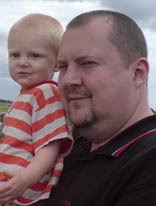
My view is that every challenge that comes our way is an opportunity to develop, expanding our minds and learning new skills. Each barrier that is placed in our way is sent to awaken inner strengths and promote personal evolution.
To this end I am an advocate of the ‘Active Citizenship’ agenda and I feel that this is essential to achieving positive change in the world. I hope the following will inspire you to take up the gauntlet and do something positive in the name of the Light this week. If you do, let me know, I’d really like to hear about it.
Read on, I think you’ll be pleasantly surprised that you already fit the criteria of an ‘Active Citizen’………..
The Advisory Group on Citizenship's 1998 report states that one of the main aims of Citizenship education is "for people to think of themselves as active citizens, willing, able and equipped to have an influence in public life"
Across Europe and the United States, there is clear evidence of declining engagement in traditional democratic processes, with governments, companies and other organisations considered to be remote, and insufficiently accountable to their stakeholders. Yet, it is also widely believed that globalisation calls for new, and more devolved kinds of political and social structure, in which individual citizens will play a more active part.
This suggests that people need to be re-engaged as “active citizens”, and enabled to take informed decisions about their lives, communities and workplaces. However, many people are both disengaged and lack the skills, knowledge or understanding to do so. This is particularly true for people with little formal education and most at risk of social exclusion on other grounds.
Governments have sought to address the issue through citizenship education programmes within formal schooling, but this can only have an impact in the long term and the benefits have yet to be demonstrated. Little research has been conducted about how individuals learn to become such active citizens, the role of formal schooling in this, and the potential role of lifelong learning including less formal mode of learning.
The project considered “active citizenship” as the active engagement in collective activity in one of four areas or “domains” - the state/formal politics, the workplace, civil society and the private domain.
The following are key areas that you can promote to encourage participation and real change: -
· Decision-making – this is being increasingly devolved in organisations of all kinds. This is because there is a belief that large centralised systems are increasingly difficult to manage and plan. There is also a need to ensure democratic legitimacy for decisions and actions.
· Relationships – there is no simple standard model of what an active citizen is, nor any single process for developing citizenship. The sense of citizenship is embedded in each individual’s unique life history and formed through relationships with others, individually and in groups.
· Belonging – active citizens have a strong sense of their place and responsibility in the world and are driven by a sense of commitment to other people, rooted in notions of justice and care.
· Influence – the reasons for becoming an active citizen are formed early in life through the family and the community, at least as much as, or even more than, in school.
· Engagement – active citizens engage with the state when they wish to do so and on their own terms. They are driven by personal ethical values and many are resistant to the competitive cultures of traditional political processes and parties.
· Learning – active citizens usually learn their citizenship skills through trying to solve a problem or to fulfil a mission, rather than by setting out to “learn to be good citizens”. Learning, and citizenship emerge as a consequence of this primary motivation. Learning therefore has to be embedded in those processes.
· Transferable skills – the skills and knowledge that active citizens develop in one area (political, work, civil or private) are frequently transferred into the other areas.
· Social champions – Active citizens are notably energetic people and typically are active in several spheres.
· Resource – Lifelong learning has become a major focus of policy attention for governments, private sector organisations and social movements, but the learning of citizenship in the area of civil society is still usually under-resourced by comparison with the workplace.
· Gender – this is a significant factor in determining how and where people engage as citizens, conditioned particularly by expectations of gender roles, by social and political structures, and by the low value typically placed on citizenship in the private domain. This is unfortunate since the home and early upbringing are critical in creating the predisposition to be active citizens.
· Diversity – other important areas of difference, including ethnicity, disability and sexuality, interact with gender to create complex patterns of inclusion and exclusion. In addressing this it is important to ensure we seek to give individuals the ability to analyse critically how institutions and cultures affect individuals in different ways.
· Re-engagement – active citizens appear in general to be more highly educated than their peers. There is therefore a danger that citizenship becomes yet another area of exclusion for those who have previously been less successful in education, and who are already more prone to exclusion. However, those who become active despite low levels of initial education often re-engage with formal education as a result.
How we develop this is open to your own creativity and abilities but we, as internet authors, are in an ideal and unique position to tap into the zeitgeist and use it to encourage more people to ‘get involved’ and change things for the better. By way of reaching out to our contacts and communities the possibilities are far-reaching and highly achievable.
Therefore inspired by Slade of 'Shift Your Spirits' who has included me in a very interesting tag entitled Your Meaningful Money Makeover I’m not going to leave this simply as a lone article floating in cyberspace and have decided to transform it into a ‘tag’ – but with a difference!
The title of this tag will be “Within the spirit of positive change and the higher good – be the change! Become an Active Citizen this week and then tell the world about it on your site telling us what you did. Then link back to this article and leave a comment so we can all see the positive change in action”.
Damian







No comments:
Post a Comment